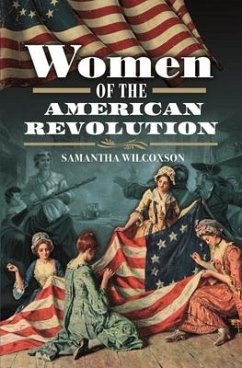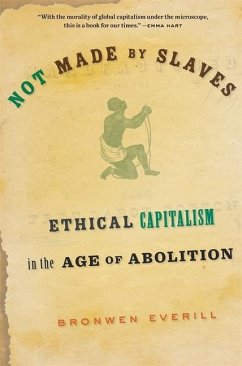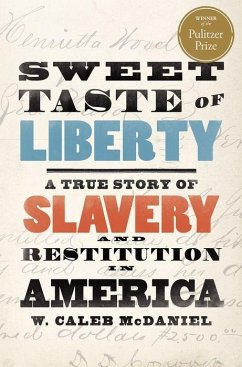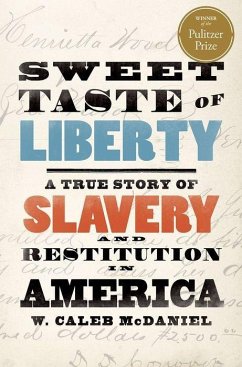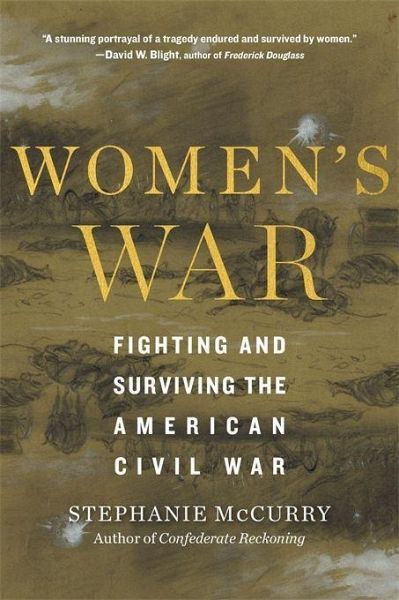
Women's War
Fighting and Surviving the American Civil War
Versandkostenfrei!
Versandfertig in über 4 Wochen
16,99 €
inkl. MwSt.

PAYBACK Punkte
8 °P sammeln!
"A stunning portrayal of a tragedy endured and survived by women." --David W. Blight, author of Frederick Douglass "Readers expecting hoop-skirted ladies soothing fevered soldiers' brows will not find them here...It explodes the fiction that men fight wars while women idle on the sidelines." --Washington Post "As McCurry points out in this gem of a book, many historians who view the American Civil War as a 'people's war' nevertheless neglect the actions of half the people." --James M. McPherson, author of Battle Cry of Freedom "In this brilliant exposition of the politics of the seemingly pers...
"A stunning portrayal of a tragedy endured and survived by women." --David W. Blight, author of Frederick Douglass "Readers expecting hoop-skirted ladies soothing fevered soldiers' brows will not find them here...It explodes the fiction that men fight wars while women idle on the sidelines." --Washington Post "As McCurry points out in this gem of a book, many historians who view the American Civil War as a 'people's war' nevertheless neglect the actions of half the people." --James M. McPherson, author of Battle Cry of Freedom "In this brilliant exposition of the politics of the seemingly personal, McCurry illuminates previously unrecognized dimensions of the war's elemental impact." --Drew Gilpin Faust, author of This Republic of Suffering The idea that women are outside of war is a powerful myth in western culture, one that shaped the Civil War and still determines how we write about it today. Through three dramatic stories that span the course of the war, this groundbreaking reconsideration invites us to see America's bloodiest conflict for what it was: not just a brothers' war but a women's war. When Union soldiers faced the unexpected threat of female partisans, saboteurs, and spies, long held assumptions about the innocence of enemy women were suddenly thrown into question. Stephanie McCurry shows how the case of Clara Judd, imprisoned for treason, transformed the writing of Lieber's Code, leading to lasting changes in the laws of war. Black women's fight for freedom had no place in the Union military's emancipation plans. Facing a massive problem of governance as former slaves fled to their ranks, officers re-classified black women as "soldiers' wives"--whether or not they were married--placing new obstacles on their path to freedom. Finally, Women's War offers a new perspective on the epic human drama of Reconstruction through the story of one slaveholding woman, Gertrude Thomas, whose losses went well beyond the material to intimate matters of family, love, and belonging. Thomas's response mixed grief with rage, recasting white supremacy in new, still relevant, terms.




